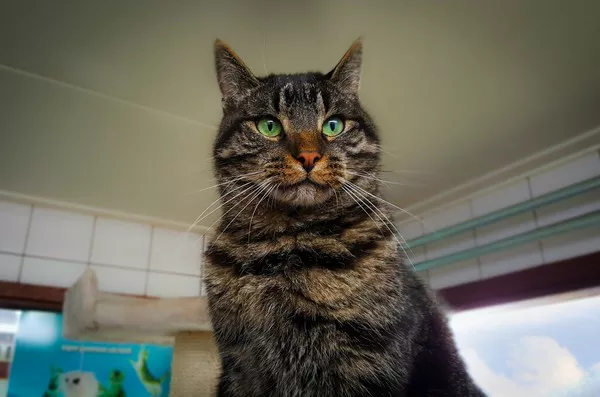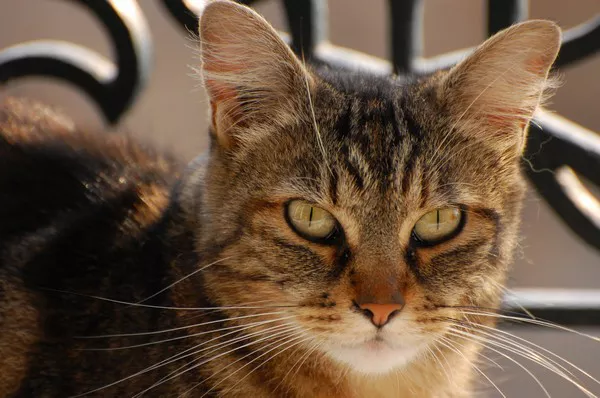The Devon Rex is a unique and charming breed known for its playful nature, affectionate demeanor, and distinctive curly coat. As a responsible cat owner, one of the most crucial aspects of caring for your Devon Rex is ensuring that it receives proper nutrition. Feeding your cat the right amount and type of food is vital for its overall health, development, and well-being. This essay will explore how much you should feed your Devon Rex cat, considering factors such as age, weight, activity level, and dietary needs. By the end of this guide, you will have a comprehensive understanding of how to provide optimal nutrition for your beloved feline companion.
Understanding the Nutritional Needs of Devon Rex Cats
Basic Nutritional Requirements
Cats are obligate carnivores, meaning their diet must primarily consist of meat. Understanding the basic nutritional components required for a healthy diet is essential for feeding your Devon Rex:
Proteins: High-quality protein is crucial for muscle development, energy, and overall health. Look for cat foods that list meat or meat meal as the first ingredient.
Fats: Fats provide energy and help with the absorption of fat-soluble vitamins. They also contribute to healthy skin and a shiny coat. Omega-3 and Omega-6 fatty acids are particularly beneficial.
Carbohydrates: While cats do not require carbohydrates in the same way that dogs do, some carbohydrates can provide energy and fiber. Look for whole grains and vegetables as sources of carbohydrates.
Vitamins and Minerals: Essential vitamins and minerals support various bodily functions, including immune health, bone development, and overall well-being. Ensure that the cat food you choose is fortified with the necessary vitamins and minerals.
Life Stage Considerations
The nutritional needs of your Devon Rex will change as it progresses through different life stages:
Kittens: Young Devon Rex cats require a diet rich in protein and calories to support their rapid growth and development. Kitten food is formulated to meet these higher nutritional needs.
Adults: Adult Devon Rex cats need a balanced diet to maintain their health and energy levels. The focus should be on high-quality protein and moderate fat content.
Seniors: Older cats may require a diet lower in calories but higher in fiber to support digestion and maintain a healthy weight. Senior cat food is designed to meet these specific needs.
Determining the Right Amount of Food
Feeding Guidelines
Determining how much to feed your Devon Rex involves considering several factors:
Weight: The ideal weight for a Devon Rex typically ranges from 6 to 10 pounds, depending on the individual cat’s size and build. Use this as a baseline for determining portion sizes.
Activity Level: Active cats require more calories than sedentary ones. If your Devon Rex is playful and energetic, it may need additional food to support its activity level.
Age: As mentioned earlier, kittens, adults, and seniors have different caloric needs. Adjust the amount of food based on your cat’s age and life stage.
Measuring Food Portions
To ensure your Devon Rex receives the appropriate amount of food, consider the following methods:
Dry Food: If you are feeding dry kibble, consult the feeding guidelines on the packaging. These guidelines typically provide a recommended daily amount based on your cat’s weight.
Wet Food: For canned or wet food, the feeding guidelines will also be indicated on the packaging. Generally, a can of wet food is equivalent to about a quarter to a half cup of dry food.
Combination Feeding: If you choose to feed a combination of dry and wet food, adjust the portions accordingly to avoid overfeeding.
Choosing the Right Type of Food
Dry vs. Wet Food
Both dry and wet food have their advantages and disadvantages:
Dry Food:
Pros: Convenient, easy to store, and helps maintain dental health by reducing tartar buildup.
Cons: Less moisture content, which can lead to dehydration if not enough water is consumed.
Wet Food:
Pros: Higher moisture content, which can help with hydration and is often more palatable for cats.
Cons: More expensive, requires refrigeration after opening, and can contribute to dental issues if used exclusively.
Quality of Ingredients
When selecting food for your Devon Rex, prioritize high-quality ingredients:
Meat-Based Proteins: Look for foods that list real meat or meat meal as the primary ingredient.
Avoid Fillers: Steer clear of foods that contain excessive fillers like corn, soy, or by-products, as these do not provide significant nutritional value.
Grain-Free Options: Some cats may benefit from grain-free diets, particularly if they have sensitivities or allergies. Consult your veterinarian for guidance on this.
Special Dietary Needs
Some Devon Rex cats may have specific dietary needs based on health conditions:
Food Allergies: If your cat shows signs of allergies (e.g., itching, gastrointestinal issues), consult your veterinarian for a hypoallergenic diet.
Weight Management: If your Devon Rex is overweight, consider a weight management formula that provides fewer calories while still delivering essential nutrients.
Dental Health: Some cat foods are formulated to promote dental health, which can be beneficial for maintaining your Devon Rex’s oral hygiene.
Feeding Schedule and Routine
Frequency of Feeding
Establishing a consistent feeding schedule is crucial for your Devon Rex:
Kittens: Young kittens should be fed 3-4 times a day to support their rapid growth.
Adults: Adult Devon Rex cats can typically be fed twice a day. This helps regulate their metabolism and prevents overeating.
Seniors: Senior cats may benefit from smaller, more frequent meals to aid digestion and maintain energy levels.
Portion Control
To prevent obesity and ensure your Devon Rex maintains a healthy weight, practice portion control:
Use Measuring Cups: Measure out the appropriate portion sizes based on the feeding guidelines and your cat’s caloric needs.
Avoid Free-Feeding: Leaving food out all day can lead to overeating. Instead, establish set meal times to monitor your cat’s intake.
Treats and Snacks
While treats can be a great way to bond with your Devon Rex, they should be given in moderation:
Limit Treats: Treats should not make up more than 10% of your cat’s daily caloric intake to prevent weight gain.
Healthy Options: Choose healthy treats that are low in calories and high in nutritional value. Consider using small pieces of cooked chicken or commercial cat treats that are specifically formulated for felines.
Monitoring Your Devon Rex’s Weight
Regular Weigh-Ins
Regularly monitoring your Devon Rex’s weight is essential for ensuring it remains healthy:
Home Weighing: Use a digital scale to weigh your cat at home. Weigh it consistently at the same time of day for accuracy.
Veterinary Check-Ups: Schedule regular veterinary visits for professional weigh-ins and health assessments.
Body Condition Score (BCS)
Using a Body Condition Score (BCS) can help assess whether your Devon Rex is at a healthy weight:
BCS Scale: The BCS typically ranges from 1 to 9, with 1 being severely underweight and 9 being obese. A score of 4-5 is considered ideal for most cats.
Assessing BCS: To evaluate your cat’s BCS, gently feel its ribs. You should be able to feel them without excess fat covering. The waist should be visible when viewed from above, and the abdomen should tuck up when viewed from the side.
Adjusting Diet Based on Weight Changes
If you notice fluctuations in your Devon Rex’s weight, consider adjusting its diet accordingly:
Weight Loss: If your cat is overweight, reduce its caloric intake and increase physical activity. Consult your veterinarian for a weight loss plan.
Weight Gain: If your cat is underweight, increase its caloric intake gradually to promote healthy weight gain.
Common Feeding Mistakes
Overfeeding
One of the most common mistakes cat owners make is overfeeding:
Portion Sizes: Always adhere to the recommended portion sizes based on your cat’s weight and activity level.
Ignoring Body Condition: Regularly assess your cat’s body condition and adjust food portions as necessary.
Inconsistent Feeding Schedule
Inconsistency in feeding times can lead to overeating or anxiety in your Devon Rex:
Establish Routine: Stick to a consistent feeding schedule to help regulate your cat’s appetite and metabolism.
Neglecting Hydration
Cats often do not drink enough water, especially if they are fed primarily dry food:
Encourage Water Intake: Provide fresh water daily and consider adding wet food to your cat’s diet to increase moisture intake.
Water Fountain: Some cats prefer running water, so consider investing in a cat water fountain to encourage drinking.
Conclusion
Feeding your Devon Rex the right amount and type of food is essential for its health and well-being. By understanding the nutritional needs of this unique breed, determining appropriate portion sizes, and establishing a consistent feeding routine, you can ensure that your feline companion thrives.
Remember to monitor your Devon Rex’s weight and body condition regularly, and be prepared to adjust its diet as needed based on age, activity level, and health status. With proper nutrition and care, your Devon Rex will lead a happy, healthy life, filled with playful moments and affectionate companionship.
Related topic:

























